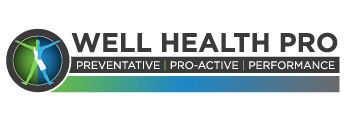Pain is caused by different muscle conditions, for example the tearing or straining of a muscle. Depending on the seriousness of the injury, the damaged muscle stiffens or cramps. Muscle pain can also come from damage to tissues connected to the muscle (like tendons), or tissues running next to the muscle (like nerves).
We have written articles about how we test and treat painful muscle conditions (such as Muscle Spasms and Cramps and Torn Muscles) to help you start your healing. We believe that each person’s case is unique and we want to address your specific needs. If you would like us to investigate or provide some insight, we invite you to contact us by clicking the link below.

Muscle strain (torn muscle)
Each muscle is made up of a million or more small muscle fibers. Muscle damage is when these fibers start tearing. A person can tear around a thousand muscle fibers at a time. These injuries are grouped by the level of the damage to the muscle.
Muscle spasm or cramp
A muscle spasm or cramp is when a muscle tenses up (or tightens) without you controlling it. Click here to read our article outlining the differences between spasms and cramps and an overview of our treatment of painful muscles.
Repetitive muscle strain
(overuse and overload injury)
This type of muscle pain develops when a muscle has to tighten at regular intervals with a great amount of force. The muscle strains to pull together under this type of ongoing pressure causing the small microscopic fibers to tear. This type of muscle strain is commonly referred to as ‘pulling’ a muscle. Click here to read about how we treat torn muscles.
Muscle Tendinitis
Over time, a tendon will develop small tears if put under too much pressure or strain. When a tendon tears often (small but regular tearing), it will cause Muscle Tendinitis. The pain from this injury will appear quickly and unexpectedly. Typically, tendon injuries occur in three areas:
- musculotendinous junction (where the tendon joins the muscle)
- mid-tendon (non-insertional tendinopathy)
- tendon insertion (e.g. into bone)
Non-insertional tendinopathies start out as very small injuries (microtrauma) which worsen from repetitive overloading e.g. over-training.

Muscle Stiffness
- After a heavy workout session it is common to experience Delayed muscle soreness (DOMS) because muscles are pushed beyond their usual limits.
- The physical shortening of a muscle causing a loss in your normal range of movement.
- Muscle stiffness can be related to a more serious problem, for example when muscles act to protect a damaged joint.
Muscle Contusion/Bruise
A bruise is caused when direct pressure is applied to a muscle. The small blood vessels (called capillaries) within the muscle tear from the pressure causing the blood plasma to escape into the surrounding tissue. This explains the discoloration of the skin but discoloration is not always visible.
Medical scans show muscle damage
There are three scans that can show a muscle tear (arranged from least to most expensive):
- Sonar
- CT (Computerized tomography scan)
- MRI (Magnetic Resonance Imaging scan)
It is very rare that you need these expensive scans. We deal with muscle damage in patients every day and will be able to diagnose the muscle damage without the use of these scans.

Nerve damage
Nerves and blood vessels are very sensitive structures that run next to or between muscles. When a muscle gets damaged, these nerves and blood vessels can also get damaged. Nerve damage is commonly experienced as ‘a sharp shooting or burning pain’ down the limb. In severe cases, numbness or pins and needles could indicate that nerves are damaged. If you experience these symptoms accompanied with muscle pain, you should consult a medical practitioner immediately.
Why is your muscle pain lasting longer than expected?
Experiencing these situations or applying similar advice and not getting results is a good thing. Why? Because these experiences help you know what doesn’t work for you. It means that you are closer to finding out what does work for you!
We invite you to book an appointment with a Physiotherapist (at our Pretoria practice). During an appointment we assess your symptoms, diagnose the cause, educate you about what is happening in your body and then start treatment. See our FAQ for more in depth information about what to expect from a physiotherapy session.
Alternatively, click the link below to book a FREE phone call. The phone call is complimentary and there is no obligation to book any appointments with us after the call is over. This is an opportunity to get an expert’s advice about your situation. Our goal is to help you make an informed decision about what to do next concerning your muscle pain.
4 steps to get rid of muscle pain quickly.
If you would like to know how the Physiotherapy team at Cilliers & Swart can help you, we invite you to book a FREE, no-obligation, risk-free “Call me back” phone call.
Note: This Free Call is a service we offer to people who are nervous or unsure. You might not know if Physiotherapy is the right treatment for you. If you are unsure, please fill out our online form. We will contact you to find out what is wrong and how we can help. There is no financial obligation or risk on your part. You have nothing to lose except your pain.

